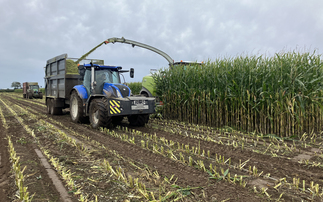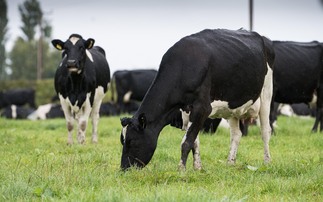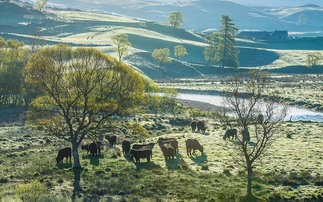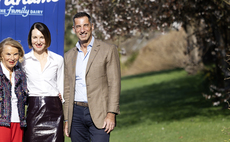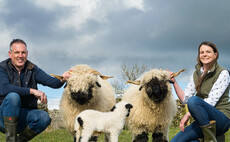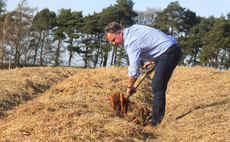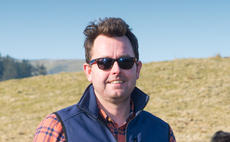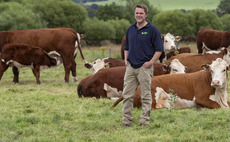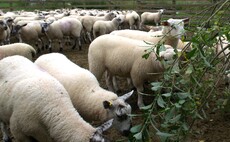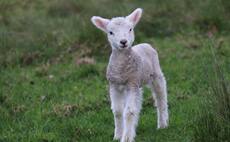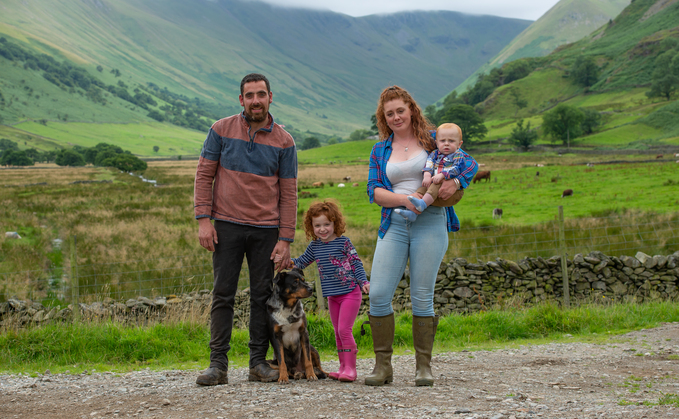
Left to right: Jack, Grace, Rachel and Rory.
Tucked behind Lake Ullswater in the valley of Martindale, in the Lake District, is Winter Crag Farm, home to Jack and Rachel Cartmel, and their two children Grace (4) and Rory (1).
Here they run a flock of 800 North Country Cheviot ewes, 400 Herdwick ewes and a suckler herd of 60 in-calf Beef Shorthorn and Luing cows.
Both from farming backgrounds, Jack and Rachel previously ran a 24-hectare (60-acre) smallholding near Wigton, before taking on the tenancy at Winter Crag Farm in November 2017.
The farm comprises 41ha (100 acres) of in-by ground, 81ha (200 acres) of grassland on a neighbouring farm and a further 109ha (270 acres) of grassland below Lake Ullswater, as well as the rights to three fell stocks on Martindale East and Martindale West commons.
Jack and Rachel arrived at Winter Crag Farm with their own flock of 300 Swaledale draft ewes, which were crossed with a Bluefaced Leicester tup to produce North of England Mules.
They also took on the farm's existing 650-head pure Swaledale flock, but after two years of running the flock as it was, they decided a change in direction was needed. Jack says: "The Swaledales were not thriving and did not perform well enough for us here."
Deciding a change was needed to keep the sheep enterprise profitable, the couple borrowed a North Country Cheviot tup from a neighbour and tupped 100 of the worst Swaledale ewes that year as a trial run.
Jack says the trial was a success and the lambs produced by using the North Country Cheviot tup were considerably larger than the pure Swaledale lambs, even though they were late born.
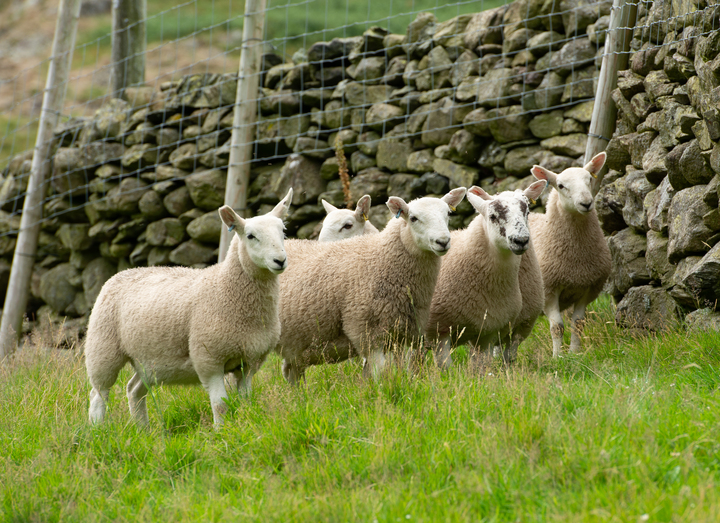
This prompted them to tup all of the Swaledale ewes with the North Country Cheviot the following year.
Jack adds: "That next year we went and bought 15 tups from Lockerbie auction market. I think everyone thought we were a bit mad to begin with, especially our families, who are Swaledale through and through."
They have since continued to cross the flock, while also buying-in 50 pure North Country Cheviot hoggs annually to quicken the transition to a pure North Country Cheviot flock.
Rachel says this year will mark four years since the couple began crossing the Swaledales, with the flock now comprising all pure-bred and second cross North Country Cheviot ewes and 20 tups.
About 400 hoggs are retained each year to build numbers, with surplus and wether lambs sold as stores at Longtown auction market and 250 draft ewes with Beltex cross lambs at foot sold through Penrith auction market.
Rachel says changing the flock was a big decision for them to make, but after seeing how well the North Country Cheviot lambs were doing, they decided it was a no brainer.
She adds: "It was not an overnight change, but last year we made the big decision to get rid of all of the Swaledale ewes. You would have thought it would have been daunting, but really it was easy, because we could see the improvement in the stock as soon as we started to change to the Cheviot."
Rachel says that straight away they started to produce a lamb which was profitable and thrived on lower input, allowing them to wean the trial lambs and sell them just a few days later for double the price a pure Swaledale wether would have achieved.
Jack says: "Now we are mainly a Cheviot flock and we can see a big difference at weaning time. Lambs come off their mothers and can be sold as stores almost straight away." He says this was not an option previously, with the pure Swaledale lambs having a lower store value.
As a result, the couple had to finish the Swaledale lambs on-farm, which required more concentrate feed and the need to rent better grassland. Jack says: "It makes life a lot easier for us being able to produce a high-value lamb with less input."
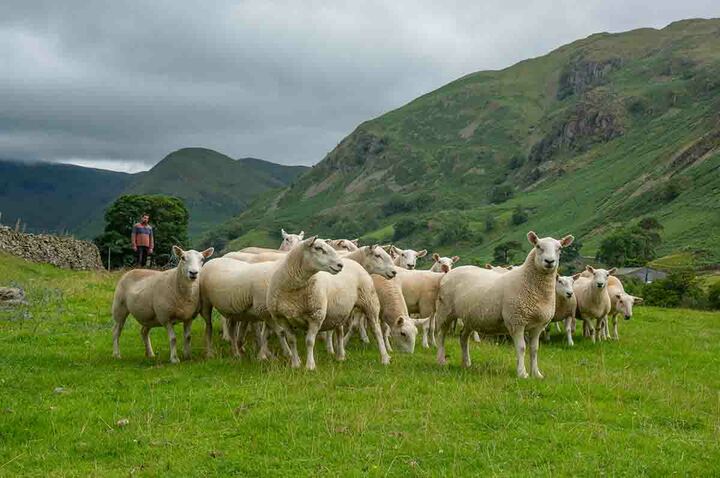
The flock requires a lot less labour now the sheep are not being fed concentrates outside, which is key, as while both Jack and Rachel work full-time on the farm, Jack shears sheep during summer, as well as belly clipping lambs at Penrith auction market and running a mobile dipping business.
Rachel also runs a sheepdog training business and a holiday let on-farm.
The couple say they have also noticed a significant change in the amount of concentrate feed used, which has dropped from 25-30 tonnes of feed used annually to next to nothing.
Rachel says: "Last year we barely used any feed. The North Country Cheviots are much more natural and they thrive off the land, which they should do, as you need a sheep which is productive."
Ewes are fed silage prior to lambing, which starts in the middle of April, with everything lambed outside and back on the fell within a couple of weeks.
Rachel says: "The first year we had them we looked after them too well, feeding them cake like we would the Swaledales and we had a few problems at lambing time, with ewes being too fit. But this last year we barely gave them any feed and we did not have to assist many ewes."
Both Jack and Rachel agree that changing the flock was one of the best decisions they have made since moving to Winter Crag Farm.
Rachel says: "It was a positive step. It is motivating to work with them and they are adding value to the business. "Having a lower input flock which produces a better output makes farming a little bit easier and more rewarding."
He says it was the ‘thriviness' of the breed which made them opt for using the North Country Cheviot tup initially, as well as being a versatile breed with high output and low input.
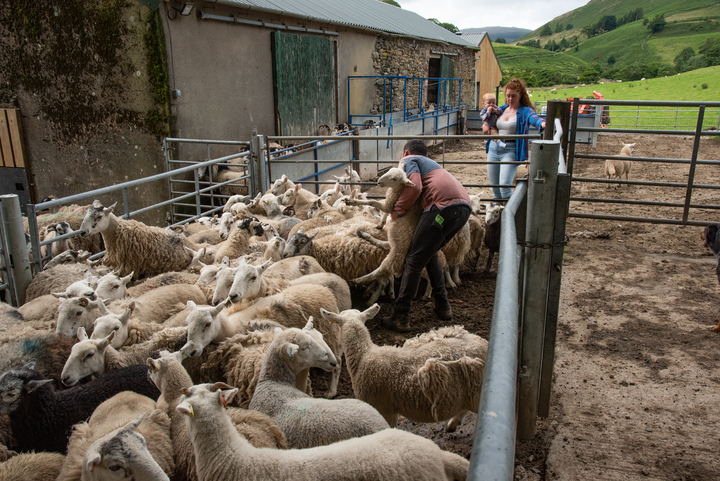
And now that the second cross ewes are coming through, the progress the flock has made is increasingly evident in the quality of lambs being produced.
Jack says: "Every year the sheep are getting better. When we set off with the first crosses, you would get ones with dark faces and bits of horns, but now they are getting much more even and every year our gimmer hoggs get better."
The couple have recently joined the North Country Cheviot Sheep Society with a view to breeding pedigree draft ewes going forward.
Looking to the future, the couple say their plan is to get the flock as good as they can and as pure as they can to increase the value of their sheep enterprise.
Jack says: "We would also potentially look to breed pedigree tups one day. We are not focusing on it now, but if we could breed a good tup in a year or two, it would be a bonus."
Farm facts
-
Flock of 800 pure-bred and second cross Cheviot ewes
-
400 hoggs retained annually, with surplus lambs sold as stores
-
250 Cheviot cross ewes, with Beltex cross lambs at foot sold annually
-
The couple also run a flock of 400 pure Herdwick sheep, with 200 draft ewes put to a Bluefaced Leicester cross Texel tup
-
Beef Shorthorn and Luing calves sold as store cattle at 20 months old to a private buyer and through Longtown auction mart












